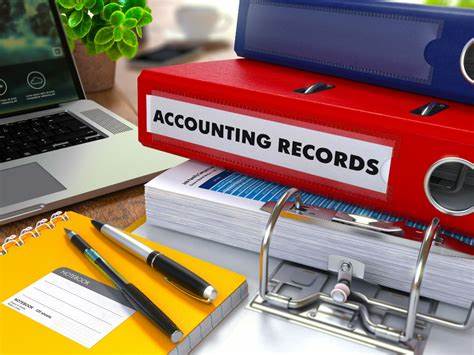Introduction
The body corporate, through the trustees (or managing agent if one is appointed), have various duties to compile, keep and make financial records available to members of the body corporate. The timely and accurate execution of these responsibilities are fundamental to the sound, transparent and good governance of the scheme.
- Annual financial statements
Section 3(6) of the STSM Act the body corporate must in its annual financial statements account for all contributions and any other charges debited to members’ accounts.
PMR 25(6) requires that the body corporate must in its annual financial statements account for all contributions, and any other charges debited to members’ accounts.
PMR 25(7) requires that the body corporate must, on the request in writing by a member, make available a full and detailed account of all amounts debited and credited to the member’s account with the body corporate.
PMR 26(1)(c) deals with the preparation of annual financial statements for presentation at the general meeting. These must include analyses of:
- The amounts due to the body corporate in respect of contributions, special contributions and other charges, classified by member and the periods for which such amounts were owed.
- The amounts due by the body corporate to its creditors such as any public authority, local municipality or other entity for services including, without limitation, water, electricity, gas, sewerage and refuse removal, classified by creditor and the periods for which such amounts were owed;
- The amounts advanced to the body corporate by way of levy finance, a loan, in terms of a guarantee insurance policy or otherwise, setting out the actual or contingent liability of the body corporate and the amounts paid by the body corporate and by any member in terms of such arrangement;
- The amounts in the reserve fund showing the amount available for maintenance, repair and replacement of each major capital item as a percentage of the accrued estimated cost and the rand value of any shortfall;
- Premiums and other amounts paid and payments received by the body corporate and any member in terms of the insurance policies of the body corporate and the expiry date of each policy; and
- The amounts due and payable to the Community Schemes Ombud Service.
- Audited financial statements
PMR 26(4) requires that the body corporate must present audited financial statements to a general meeting for consideration within four (4) months after the end of the financial year (unless all the sections in the scheme are registered in the name of one person, the body corporate).
- Books of account
PMR 26(1)(a) requires that the body corporate must keep properbooks of accounts that:
- record all its income, expenditure, assets and liabilities;
- disclose all amounts recovered from members by the body corporate or any managing agent or other service provider acting on its behalf;
- include individual accounts for each member; and
- contain all other information necessary to allow members to assess the body corporate’s financial situation and their financial situation in regard to the body corporate.
PMR 26(1)(b) states that the body corporate must keep separate books of account and bank accounts for its administrative and reserve funds.
- Maintenance, repair and replacement plan
PMR 26(1)(d) states that he body corporate must prepare the maintenance, repair and replacement plan in accordance with PMR 22 for presentation at the AGM.
- Budgets
PMR 26(1)(e) states that the body corporate must prepare budgets for the administrative and reserve funds comprising itemised estimates of the anticipated income and expenses during the next financial year for presentation at the AGM.
- Trustees’ report
PMR 26(1)(f) states that the body corporate must preparea report adopted by the trustees reviewing the affairs of the body corporate during the financial year for presentation at the AGM.
- Other documents and records
PMRs 27(1), (2) and (3) requires that the body corporate must lodge, compile, prepare, update, obtain and keep many governance documents and records listed in those provisions, including the scheme rules, minutes, lists of role players, sectional plans, and details on future development rights. Of particular importance in regard to financial documents is PMRs 27(3)(h) and (i) and (j) and (l) which states that the body corporate may obtain and keep copies of the budget and financial statement for the current year and previous years; income tax returns; and insurance policies, endorsement and claim forms; and any other records required by the regulations. PMR 27(8) specifically states that the records referred to in this rule must be in writing or in a form that can be easily converted to writing.
PMR 27(4) requires that the body corporate must make the records and documents referred to in this rule available for inspection and provide copies of them, on receiving a written request by, to a member; a registered bondholder; or a person authorised in writing by a member or registered bondholder. PMR 27(5) requires that the body corporate must comply with a request for inspection or copying within ten (10) days unless the request is in respect of the rules, in which case the body corporate must comply with the request within five (5) days. PMR 27(6) allows the body corporate to charge a fee for a copy of a record or document other than the rules, provided that the fee is not more than the reasonable cost associated with the process of making the copy, and the body corporate may refuse to supply the copy until the fee is paid.
The duty to make these documents available for inspection
Section 3(7) of the STSM Act states that, on request in writing by a member, the body corporate must make available a full and detailed account of all amounts debited and credited to the member’s account with the body corporate.
PMR 26(2) states that the body corporate must make all or any of the books of account and records available for inspection and copying on the application of any member, registered bondholder or of the managing agent.
The duty to retain these documents
PMR 26(3) states that the body corporate must ensure that all the body corporate’s books of account and financial records are retained for a period of six (6) years after completion of the transactions, acts or operations to which they relate.
Conclusion
Efficient financial management is one, if not the most, important functions of the body corporate. The body corporate need to accurately budget for the expenses for the next financial year. The collection of the levy contributions is the lifeblood of the scheme. The management and allocation and record of the scheme’s financial income, savings and expenses needs to be handled with care.
WRITTEN BY DR CARRYN DURHAM







![Case discussion on SS Glen High v Kruger NO ((2023/055133) [2024] ZAGPJHC 1059 (10 September 2024)](https://b2659803.smushcdn.com/2659803/wp-content/uploads/2024/10/OIP-300x200.jpeg?lossy=1&strip=1&webp=1)




